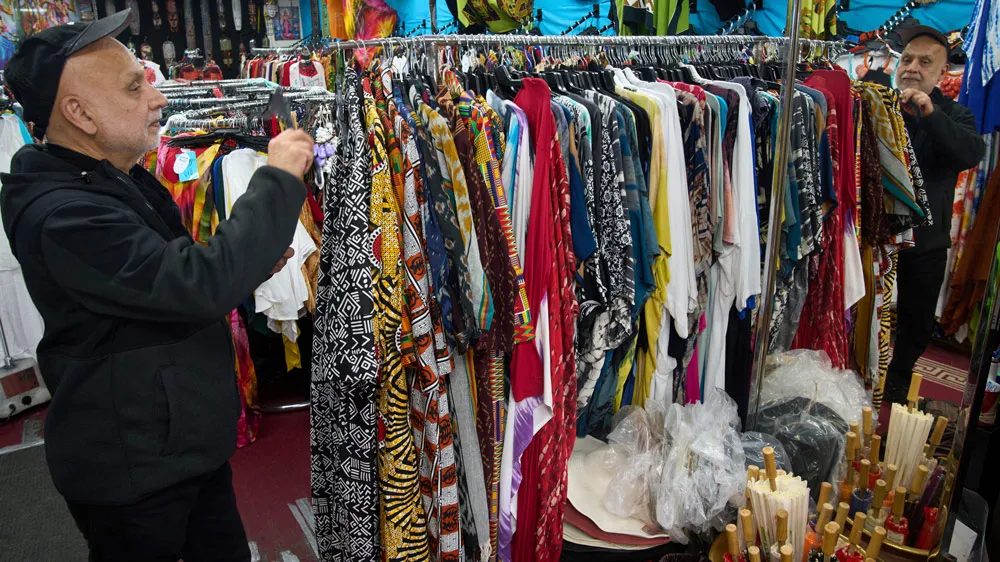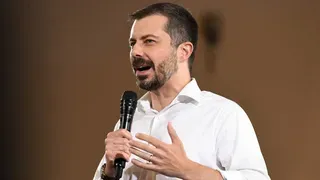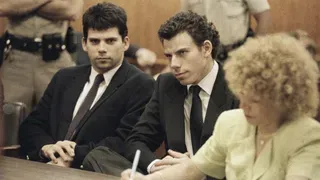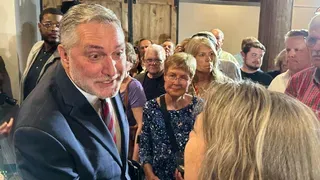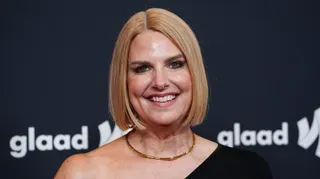February 7, 2015
Is Hungary Becoming The New Russia?
Kilian Melloy READ TIME: 4 MIN.
Is the LGBT community in Budapest safe?
Is it acceptable to be homosexual in the nation of Hungary? Sources close to the U.S. State Department are concerned about the rising level of intolerance in Central and Eastern Europe. At the forefront of this situation is Hungary, a traditionally conservative nation that is lurching ever more to the right.
Stuart Milk, the gay nephew of slain American civil rights champion Harvey Milk, has traveled extensively to Hungary over the last few years. In his work with Pride events and receptions at the U.S. Embassy, Milk has observed very little homosexual expression.
"Society is normally OK with it (homosexual conduct), but they certainly do not talk about it and are not out," Milk said during an interview with The Mirror from his attorney's office in Wilton Manors, Fla.
Milk, President and Co-Founder of the Harvey Milk Foundation, recently attended an LGBT themed "Night of Inclusion" at the U.S. Embassy in Budapest along with former ambassador Nancy Brinker and her gay son, Eric. Milk said Eric was disappointed that a number of his Hungarian friends said they could not attend such a public event.
"The current climate has made it more difficult for LGBT people to be open and honest," said Brinker. "[Being openly gay is] still not universally accepted at a professional level."
Brinker visited Hungary countless times while his mother served as the U.S. Ambassador under President George W. Bush from 2001-2003. He insists Hungary is "a great country" and Budapest is a world-class city.
"I absolutely encourage people to visit," Brinker said. "It is a beautiful country. The people are incredibly nice and the cuisine is unbelievable and full of flavor. There's wine, culture and arts. It really is a special place."
That said, Brinker said he feels Hungary is probably 20 years behind the U.S. in terms of LGBT rights.
Viktor Orban currently serves as Hungary's Prime Minister. There are reports Orban, 51, is leading his country toward a close alliance with the policies employed by those in the Russian Federation. Orban has held the position of Prime Minister since May of 2010.
"Viktor Orban played a prominent role in challenging Hungary's communist regime in its final months," said Jim Bjork, a professor of Central European studies at London's King's College. "Unfortunately, since the conservative party he now leads won a supermajority in the Hungarian parliament, Orban's government has embarked on a disturbing pattern of curtailing activities by independent organizations, including civil rights organizations. His government has also amended the constitution to define marriage as solely between a man and a woman."
The right to marry is just one area of civil rights the late Hungarian activist Milano Rosza was advocating before his tragic death inside a Budapest train station. The cause of death is still under investigation. Rosza's story, Milk said, should be used to "highlight what our LGBT brothers and sisters go through" in Hungary.
"He was the only visible face," Milk said of late Rosza. So many others, Milk said, either burn out quickly or disappear. Rosza was often shown on Hungarian television protesting against internet taxes. His activism eventually landed him in jail, Milk said.
The State Department does note, in a 2013 human rights report, of overcrowding and poor conditions in Hungary's prison system. DOS also notes the most important human rights problems in Hungary are the on-going discrimination and exclusion of Roma (or Romani) people and anti-Semitism.
Milk points to the far right Jobbick Party as perpetrators of an ultra-nationalistic spirit in Hungary that is associated with neo Nazi activity. Jobbick Party members, Milk said, align themselves with a "Putinism" style of government - a not so subtle reference to Russian Federation President Vladimir V. Putin.
"The concept they're (Jobbicks) pushing is to be against anything they deem as liberalism," Milk said.
In a speech in Romania last summer, Orban indicated he would take Hungary, a member of NATO and the European Union, on a course away from liberal policies.
Hungary, Orban stated, "will undertake the odium of expressing that in character it is not of liberal nature." Citing as models Singapore, China, India, Turkey and Russia, Orban added: "We have to abandon liberal methods and principles of organizing a society, as well as the liberal way to look at the world."
Since the fall of the Berlin Wall in 1989, no sitting President had mentioned Hungary in a U.S. address. That changed suddenly in September when President Barack Obama cited Hungary - along with Russia and Egypt - as examples of nations using endless regulations and overt intimidation to target civil society.
U.S. Senator John McCain (R-Arizona) went one-step further, saying in early December that Hungary is "a very important country where bad things are going on."
In a statement, Sen. McCain claims "since Prime Minister Viktor Orban came to power in 2010, antidemocratic constitutional changes have been enacted, the independence of Hungary's courts have been restricted, nongovernmental organizations raided and civil society prosecuted, the freedom of the press curtailed, and much more. These actions threaten the principles of institutional independence and checks and balances that are the hallmark of democratic governance and have left me deeply concerned about the erosion of democratic norms in Hungary."
The Mirror reached out to the U.S. Embassy in Budapest for comment, but did not receive a response. The U.S. Senate recently confirmed the President's choice for ambassador to Hungary, Colleen Bradley Bell. Bell, a producer for the television soap opera "Bold and the Beautiful" drew the ire of Sen. McCain during confirmation hearings on Capitol Hill. Sen. McCain said Bell was "totally unqualified" to hold the ambassador post.
Kilian Melloy serves as EDGE Media Network's Associate Arts Editor and Staff Contributor. His professional memberships include the National Lesbian & Gay Journalists Association, the Boston Online Film Critics Association, The Gay and Lesbian Entertainment Critics Association, and the Boston Theater Critics Association's Elliot Norton Awards Committee.
